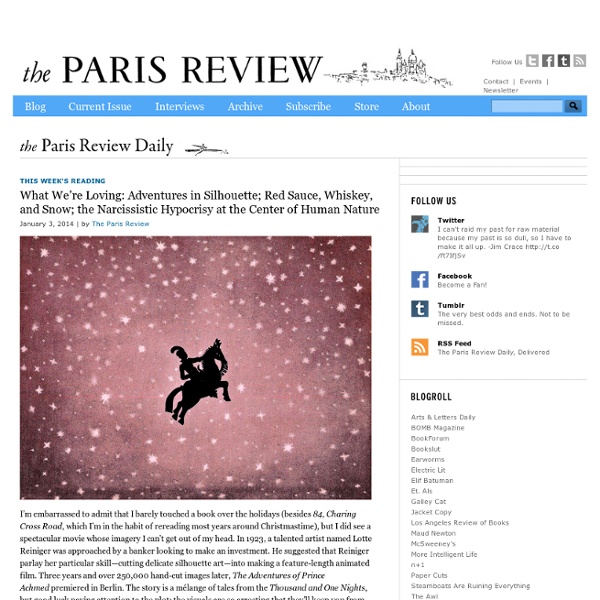Paris Review Daily - Blog, Writers, Poets, Artists - Paris Review

Review 31 Home | Review 31
Time's Flow Stemmed
ReadySteadyBook - for literature...
Ballardian
The Rumpus.net
Asymptote
The Allen Ginsberg Project
The Los Angeles Review of Books
David Foster Wallace on Writing, Self-Improvement, and How We Become Who We Are
by Maria Popova “Good writing isn’t a science. It’s an art, and the horizon is infinite. In late 1999, David Foster Wallace — poignant contemplator of death and redemption, tragic prophet of the meaning of life, champion of intelligent entertainment, admonisher against blind ambition, advocate of true leadership — called the office of the prolific writer-about-writing Bryan A. Over the course of the exchange, the two struck up a friendship and began an ongoing correspondence, culminating in Garner’s extensive interview with Wallace, conducted on February 3, 2006, in Los Angeles — the kind of conversation that reveals as much about its subject matter, in this case writing and language, as it does about the inner workings of its subject’s psyche. Wallace begins at the beginning, responding to Garner’s request to define good writing: In the broadest possible sense, writing well means to communicate clearly and interestingly and in a way that feels alive to the reader. Donating = Loving
Related:



